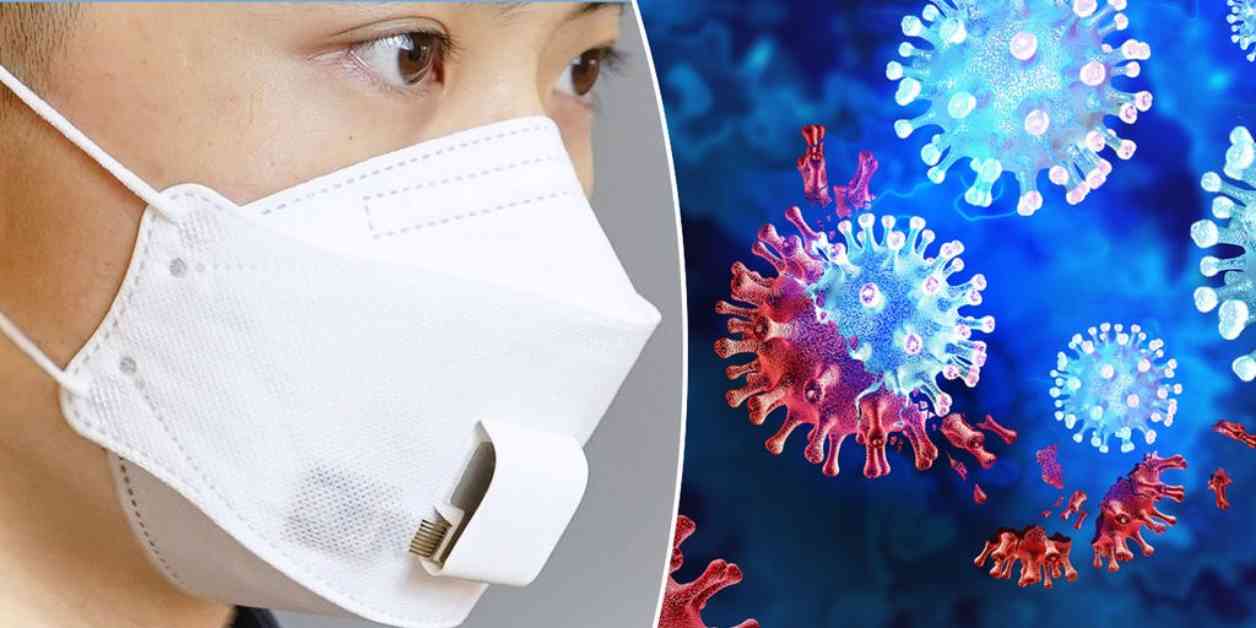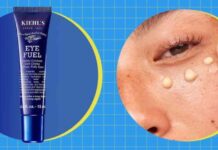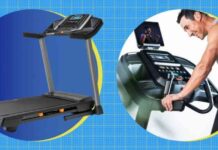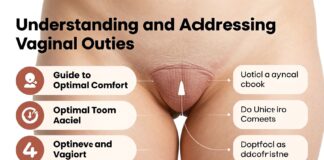The latest innovation in healthcare technology comes in the form of a “smart mask” developed by researchers at the California Institute of Technology (Caltech) in Pasadena. This groundbreaking technology, known as EBCare, is designed to analyze the chemicals in a person’s breath to detect various medical conditions. Led by Professor Wei Gao, the team behind EBCare aims to revolutionize the way respiratory health is monitored by providing valuable insights into conditions such as asthma, COPD, and post-COVID infections.
How Does EBCare Work?
EBCare works by cooling the breath to convert it into a liquid, which is then transported to sensors for analysis of specific biomarkers. This innovative approach allows for continuous, real-time monitoring of exhaled breath condensate (EBC) in a non-invasive and wearable format. By detecting biomarkers associated with respiratory infections, COPD, asthma, and other metabolic disorders, the smart mask has the potential to offer personalized health care solutions.
Lead researcher Wei Gao highlighted the versatility of the EBCare technology, stating that it could be adapted to detect a wider range of biomarkers related to metabolic, cardiovascular, and infectious diseases. This adaptability opens up possibilities for the smart mask to be used in pandemic management by monitoring respiratory infections on a wide scale.
Study Findings and Clinical Applications
A study conducted by Caltech involved 31 healthy adults wearing the EBCare mask in real-life settings over a 14-hour span. Participants, including smokers, asthma patients, COPD patients, and individuals recovering from COVID-19, successfully detected biomarkers for asthma and COPD, as well as signs of kidney disease. Additionally, the smart mask accurately measured blood alcohol levels in real time, offering a non-invasive alternative to traditional breathalyzers or blood tests.
While the EBCare technology shows promise in diagnosing various medical conditions, further clinical studies are needed to demonstrate its effectiveness compared to standard diagnostic methods. The research, funded by organizations such as the National Institutes of Health and the National Science Foundation, was published in the journal Science on Aug. 29.
Future Implications and Limitations
The ultimate goal of the EBCare technology is not to replace traditional medical diagnosis but to provide early warnings through continuous health monitoring in daily activities. By identifying subtle physiological changes before they develop into more severe conditions, individuals can take proactive steps in managing their health, leading to better outcomes.
Despite the potential benefits of the EBCare mask, some healthcare professionals have raised concerns about the practicality of continuous, real-time monitoring for the average person. Dr. Brett Osborn, a neurosurgeon, questioned the necessity of monitoring biomarkers like ammonium, pH, nitrite, and alcohol on a constant basis, as routine blood tests can provide this information more accurately and with greater relevance.
In response to such concerns, lead researcher Wei Gao emphasized the unique advantages of the EBCare mask in offering continuous monitoring of health in real time. This capability allows for the detection of dynamic physiological changes that may not be captured by periodic blood tests, especially for individuals managing chronic conditions like asthma, COPD, or metabolic disorders.
Expert Insights and Recommendations
Dr. MarkAlain Déry, an infectious disease doctor, expressed excitement about the concept of the EBCare mask but emphasized the importance of clinical studies to validate its diagnostic capabilities. While the technology shows potential for real-time monitoring, further research is needed to demonstrate its clinical effectiveness and improvement in patient outcomes.
Dr. John W. Ayers, a public health expert, raised concerns about the practicality of having patients with respiratory conditions wear the smart mask. He emphasized the need for studies demonstrating the benefits of continuous monitoring for individuals with asthma or COPD, who may already experience breathing difficulties.
Lead researcher Wei Gao acknowledged the limitations of the EBCare device, particularly in terms of sample size in clinical trials. Future studies with larger and more diverse populations will help validate the device’s performance across a broader range of conditions and environments, paving the way for its widespread adoption in healthcare settings.
In conclusion, the development of the EBCare smart mask represents a significant advancement in healthcare technology, offering potential benefits for real-time monitoring of respiratory health and early detection of medical conditions. While further research is needed to validate its diagnostic capabilities and clinical effectiveness, the smart mask holds promise for revolutionizing the way we monitor and manage our health in the future.


















